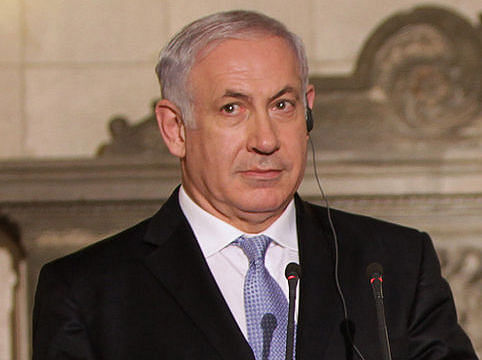Not business as usual for Netanyahu
Israel’s second longest-serving prime minister’s political demise may be looming around the corner. Benjamin Netanyahu has been at the centre of investigations of two separate graft cases for months. But with the police for the first time submitting that he is suspected of bribery, fraud and breach of trust, the noose may be tightening around the Rightwing prime minister’s neck.
But that’s not it. The police have mounted even more pressure on Netanyahu by signing a state’s witness deal with Netanyahu’s former chief of staff and one of his closest confidants, Ari Harow. That by itself reveals that Harow has something to tell, political commentators say. But even the most ardent of his critics know that Netanyahu isn’t going anywhere right away. For the prime minister to resign in Israel, conviction alone is not enough. The state prosecutor and attorney general have to give their consent to the conviction after granting the prime minister a hearing. But that said, the political and public pressure in the aftermath of such charges could be sufficient to ruffle Netanyahu’s remaining stint.
The French are better-off without a “first-lady”
Should the wife of an elected head of state be given a budget out of public funds? This question is burning in France, at a time when its president’s approval ratings are at an all-time low of 36 percent. Emmanuel Macron is facing a “people’s revolt” of sorts for his plans of giving his wife an official “first lady” role.
A large part of the people’s angst comes from Macron’s simultaneous efforts to enforce a “morality” law, which would prohibit parliamentarians from employing their wives and other family members. “At a time when French public life is being moralised, at a time when a decree banning MPs from employing members of their family is being voted … we cannot decently approve of an initiative giving President Macron’s wife a specific status,”Thierry Paul Valette, the artist and author who is behind the petition, said.
Kenya’s deadly election storm
Deployment of over 1,80,000 agents from various state security organs could signal prudence by the state in the run-up to elections in a country known for its election violence. But in Kenya, it could also signal state intimidation. As elections in Nairobi draw closer, the all-too-common pre-poll nervousness does not have as much to do with who will win the election, as it does with how the losers would react to their defeat.
Being described as the “last battle of dynasties” in Kenya – the election is a two-horse race between President Uhuru Kenyatta, the son of Kenya’s first president, and Raila Odinga, the son of its first vice-president – this election has been fraught with fake news, accusations of rigging, rumour-mongering, and at least one high profile killing. Fears that the election results would erupt into bloodshed and violence are palpable. In such a scenario, what voters fear the most is a disputed vote, which in 2007 left at least 1,300 dead, 6,00,000 displaced, and the country hovering on the brink of a civil war.
A destabilised Afghanistan works well for Tehran
Days after Donald trump lamented losing the 17-year-old war in Afghanistan, its arch-rival’s quiet and relentless attempts to make inroads into the troubled region have come to the fore. While Saudi Arabia and Pakistan remain crucial regional players in Afghanistan, Iran is also flexing its muscles to shape Afghanistan in its favour.
One of the ways of doing this is by ensuring a loyal proxy in the country, which would keep the country destabilised, but without tipping it over. They want the foreign forces to leave eventually, and be succeeded by a government that is aligned with Tehran’s interests. As for Afghans, they can see through the plot. “Iran does not want stability here…People here hate the Iranian flag. They would burn it,” said Naser Herati, one of the police officers guarding the post outside Farah.
Trump’s art of the undone deal
“Other people paint beautifully on canvas or write wonderful poetry. I like making deals, preferably big deals. That’s how I get my kicks”. This is how Donald Trump opens his 1987 book “The Art of the Deal”. Three decades and six months into an unanticipated presidency later, one of the many things that Trump should not be boasting of is the art of deal-making.
The alarmingly limited substantive policy legislation achieved during his presidency has compelled his own party to make deals without him. The Republicans realising their limitations and agreeing to work with the Democrats in fixing Barack Obama’s signature Obamacare, preventing the president from firing the special counsel Robert Mueller, and imposing sanctions on Moscow – all are evidence of the Republicans’ desperate and pragmatic attempt to make whatever possible deal despite their president.




Israel may be harsh in its treatment of the Palestinians, but it is a First World democracy when it comes to enforcing the rule of law for its own citizens, including presidents and prime ministers. This is not Chandigarh.